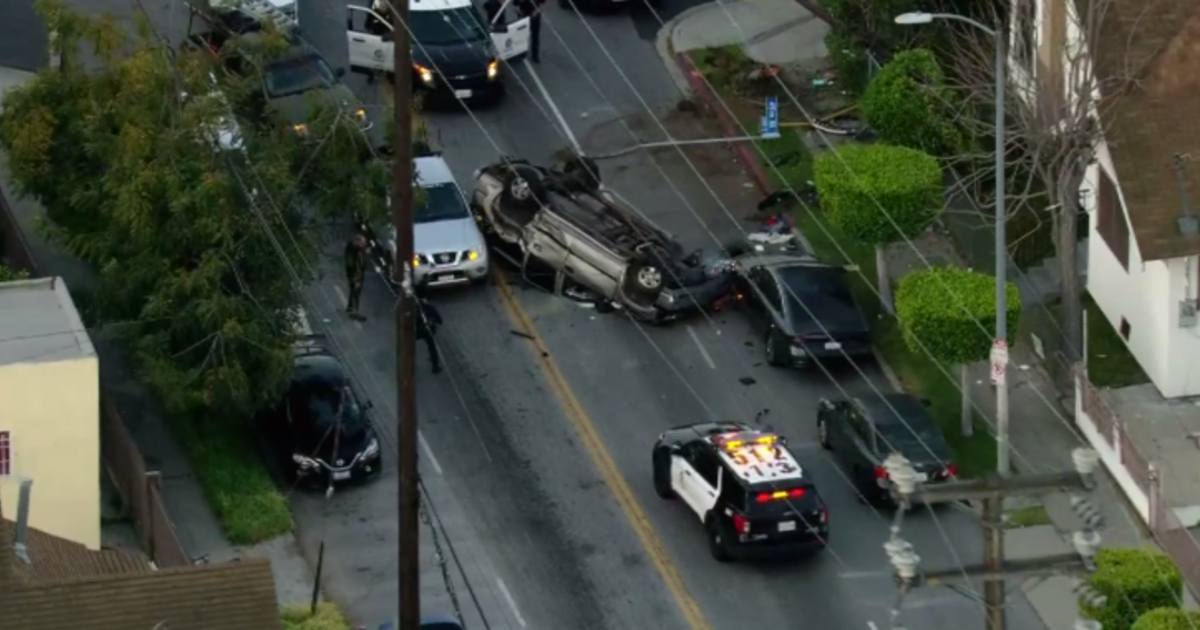Maternity Test Reveals More About Unborn Babies Earlier In Pregnancy
LOS ANGELES (CBSLA.com) — A new maternity screening test allows expectant mothers to learn more about their unborn babies earlier, but some fear it may cause more women to terminate pregnancies when babies are shown to have disabilities.
MaterniT21 Plus is a non-invasive blood test that screens for chromosomal abnormalities, like Down Syndrome.
The test, which poses no risk of miscarriage, analyzes the fetal DNA in the mother's blood.
And unlike earlier tests, it is more accurate and can be done as early as 10 weeks, when the fetus is a little more than an inch long. The test also lets the mother know the sex of the baby months earlier than an ultrasound.
Soraya Sutherlin, who is expecting her second child, elected to take the test.
"For us it was a peace of mind issue," said Sutherlin.
Dr. Amy Stoddard, an OBGYN at UCLA Medical Center in Santa Monica, offers the MaterniT21 Plus test to her patients if they will be 35 at the time of delivery.
Unlike earlier forms of screening, which promised to detect only around 85 percent, Dr. Stoddard says this test has more than a 99 percent rate of picking up Down Syndrome.
Single mother Charmaine Cruz was told over the phone that her unborn baby had Down Syndrome when she was 12 weeks pregnant, just a few days after seeing her baby wiggle around in an ultrasound.
MaterniT21 was not available when Cruz was pregnant. She had to wait several more weeks for the diagnosis, and undergo an invasive test where DNA was extracted from her womb.
"I remember the first thing she said was 'unfortunately, and I'm really sorry, your baby has Down Syndrome'," said Cruz.
The caller was about to hang up when Cruz asked what the sex of her unborn baby. She learned she was having a boy.
Though Cruz was given the option of terminating the pregnancy, she chose to continue. Her son Nathan was born in December 2010.
"He's the most amazing gift you could ever imagine," she said.
It is estimated that as many as 9 out of 10 women who receive a prenatal diagnosis of Down Syndrome terminate the pregnancy.
"There is sort of a dark underside to some of this testing," said Professor Alexander Capron, Chair of the Healthcare, Law, Policy and Ethics Center at USC Law School.
"In some ways this form of early diagnosis emphasizes the idea that we have a contingent pregnancy," said Capron. "That you can get pregnant and decide 'is this really the child that I want'?"
Doctors agree that the number of tests screening for abnormalities will only grow in the coming years, and likely become more comprehensive.
"You basically are saying 'I'll decide whether this child meets my specifications,'" said Capron, who said it might be considered "voluntary eugenics."
Mom-to-be Sutherlin said she would have continued with the pregnancy regardless of the diagnosis, but that the test provides a way to begin to prepare mentally to have a child with a disability.
"I felt like I would want to know," said Sutherlin. "There's so many unknowns in this world."
Though she agrees with the sentiment, Charmaine Cruz worries that mothers who undergo the test earlier might be more inclined to terminate the pregnancy.
"You might not have seen the ultrasounds yet," with the baby more formed, said Cruz, and it might be easier to decide not to continue.
"And what a loss," she said.
More information about Down Syndrome can be found at: The Down Syndrome Association of Los Angeles and Down Syndrome Research and Treatment Foundation.
Information on a local mom's documentary, 'What's Up With Down' can be found here.



